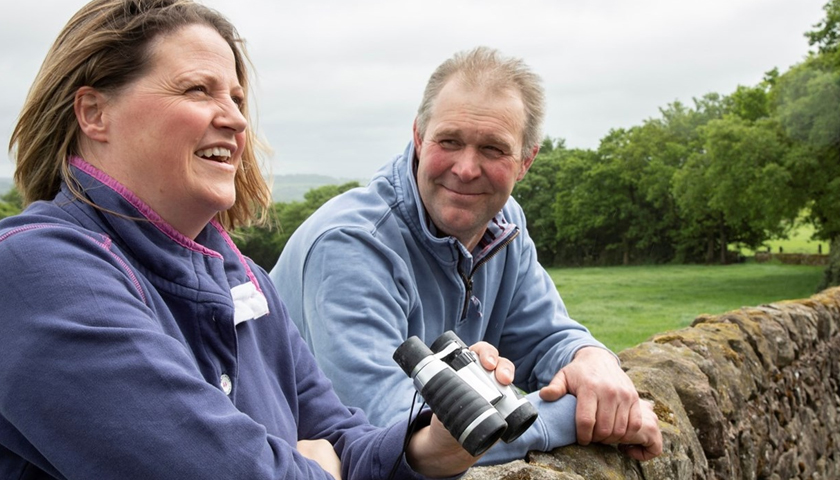In recent years these species, which are all summer migrants and fly 6000 miles to Africa to raise their young and feed on insects, have been dwindling and failing to return due to habitat loss and climate change.
But now Tesco is working with its network of 500 dairy farmers on a project to provide a safe haven for these migratory birds and boost biodiversity.
The farmers, all members of the Tesco Sustainable Dairy Group (TSDG), are being encouraged to install 5000 nest boxes on their farmland – an ideal habitat to the birds as it provides them with a natural shelter and also their insect diet.
Among the group taking part are Nina and Jon Sigley, pictured, who look after a herd of 130 cows near the small town of Leek in north Staffordshire.
Nina said:
“We have lots of large hedgerows and corridors dividing our fields where nature can thrive, creating the perfect environment for these protected birds.
“We’re installing nest boxes across the farm, focusing on areas where we’ve spotted swifts, swallows and martins before, so they can return to a place that’s familiar.
“All three species feed off small insects, so we’re also making changes to enhance biodiversity. This benefits our cows too by creating a more natural environment with lots of trees and hedges offering plenty of shade – a real bonus.”
Working closely with WWF, the TSDG promotes initiatives that support biodiversity across British farms and reduce their carbon emissions, including providing funding for farmers to plant herbal leys in their cow pastures.
TSDG farms have been providing Tesco and its customers with high quality fresh milk for more than 15 years, and in return, the supermarket guarantees long-term contracts and the financial security they need to invest in making their farms more sustainable.
Tesco Agriculture Manager Tom Atkins explains:
“We want to ensure we’re doing all we can to continue to support our farmers and help make our dairy farms some of the most sustainable in the world.
“That’s why we’re striving to increase biodiversity through initiatives like the swifts, swallows and house martins project.”


